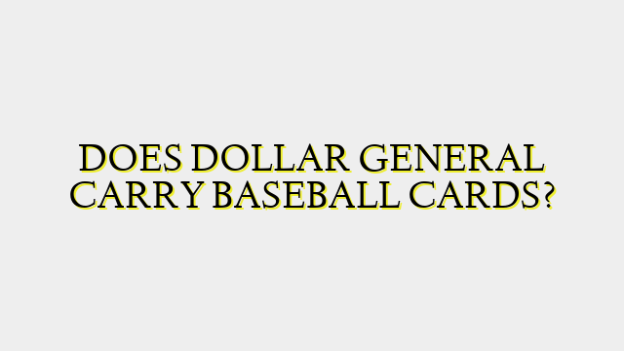Your best options for selling baseball cards for top dollar in your local area will likely be either independent sports collectibles shops that specialize in buying and selling cards, or larger nationwide chains that have buying programs. Both can potentially pay you a fair price, independent shops may be more flexible to negotiate while chains standardize their offers.
The first step would be to search online for “sports cards shops near me” and scan through the maps and listings to identify potential local buyers. You’ll likely find a mix of smaller hobby shops as well as larger nationwide collectibles chains. Some chains like Dave & Adam’s Card World, Cardinal Collectibles, or Sport Cards Inc. will have locations across the country and standardized buying programs online. They offer convenience but may not negotiate prices as much.
For independent shops, scan their websites and social media to get a feel for what kinds of cards they focus on buying and their reputation. Do they seem to specialize in higher end vintage cards or more modern issues? Call ahead or visit to introduce yourself and get a sense of their operation before choosing who to take your cards to. Establishing a rapport could help when negotiating prices.
To prepare for selling your cards, you’ll want to carefully organize and catalog what you have. Sort them by sport, era, player or team to make reviewing your collection efficient. Consider carefully grading the condition of each card using standards like PSA, Beckett, or SGC. Accurate grading is key to getting top dollar as condition impacts value significantly. You may choose to have especially valuable vintage cards professionally graded, while self-grading newer issues is usually sufficient.
Make a detailed inventory or checklist of each card that notes key details like the player, year, set, issue number, and your assessed condition grade. This allows buyers to quickly scan what you have and makes negotiating easier by being well organized. You may also want to do some preliminary research on recently sold prices for comparable graded cards to help establish a target range when discussing dollar amounts.
Bring your organized cards and checklist when first meeting with prospective buyers. Allow them time to thoroughly look through your collection and assess values. Compare notes on condition grades to ensure accuracy. Reputable shops should clearly explain the factors impacting what they can reasonably offer, like current market conditions, their costs, and desired profit margins. Avoid sellers that lowball without transparency or refuse to negotiate at all.
As the seller, you have the leverage to negotiate within reason since you control the asset. Don’t be afraid to politely inquire about potentially going a bit higher if their initial offer seems low after accounting for conditions and recent comps. Meeting in the middle on price is reasonable for both parties. Payment options may include cash, store credit, or payment via check or payment app.
Consider working with multiple buyers if possible to compare offers and ensure you find the highest price. Be prepared to walk away from uncompetitive bids to maintain negotiating power. Factors like quickly needing cash versus maximizing long term value will impact your priorities.
After reaching an agreed price, carefully count inventory against your checklist before finalizing the transaction and accepting payment. Have the buyer clearly note what they purchased for their records as well to avoid disputes later. For major valuable collections, you may want a notarized legal sale/purchase agreement to fully protect both parties.
By properly preparing and organizing your cards, doing research, and canvassing local buyers options, you maximize your chances of getting top dollar for your baseball card collection whether dealing with an independent hobby shop or major national retail chain. With patience and transparency on both sides, a fair price that makes all parties happy can usually be achieved through negotiating in good faith. Proper due diligence and businesslike approach pays dividends for collectors ready to sell.


